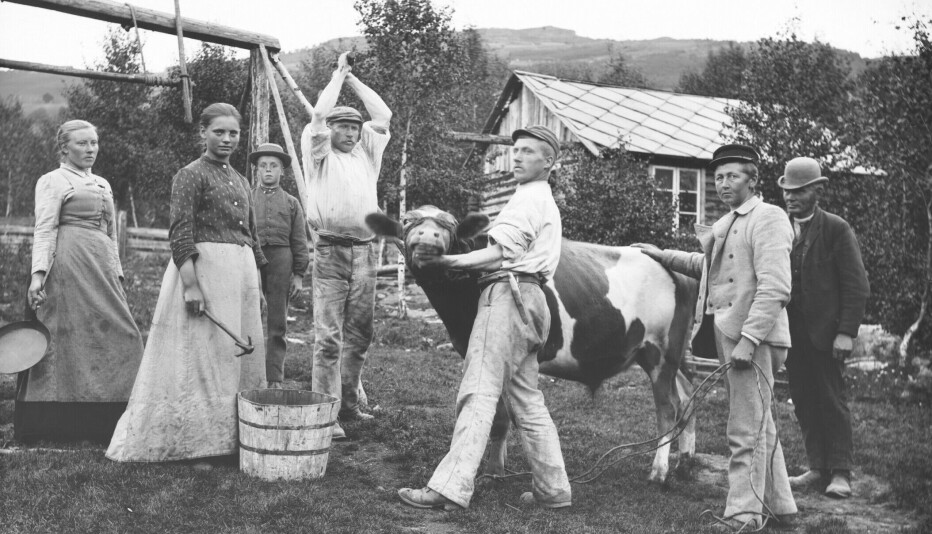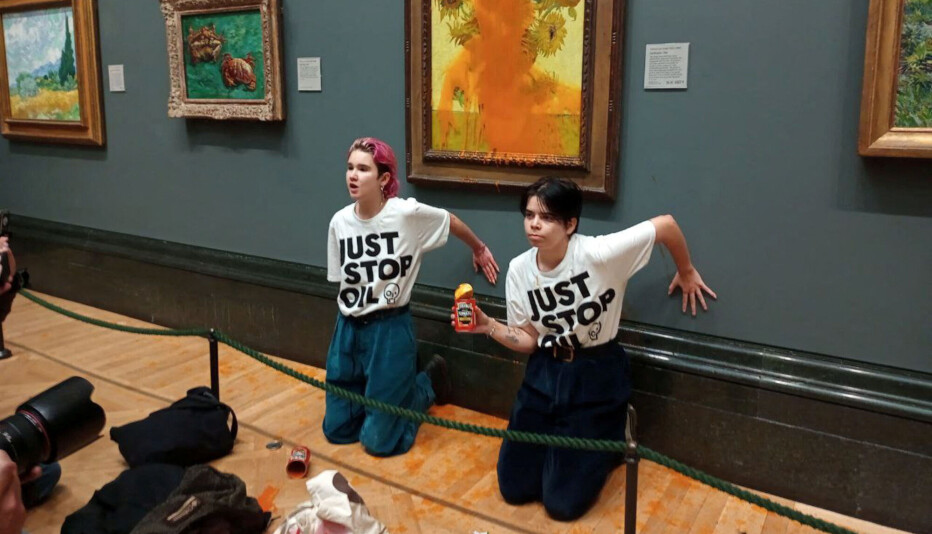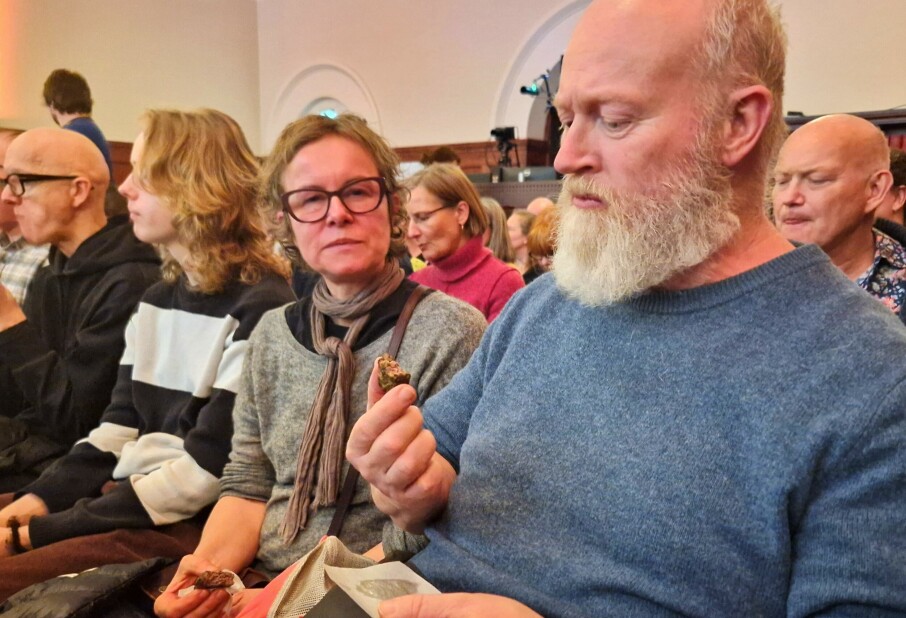
Happiness is not simply satisfaction
A psychology professor thinks our struggles and commitments – our engagement – make us happier with our lives.
Denne artikkelen er over ti år gammel og kan inneholde utdatert informasjon.
What is happiness? Joar Vittersø ponders the question. Halfway down a long hallway, in a soberly furnished office, the University of Tromsø psychology professor philosophises about what comprises the good life.
He thinks that what he is doing at the moment, exerting himself to solve a problem, is a vital element of happiness.
“We connect happiness with something pleasant, being satisfied. But the good life is something more which we researchers often fail to catch,” says Vittersø, who is writing a new book about happiness.
In the book he criticises happiness research for being one-tracked.
Enjoying problems

Because even though there is no end to all the hints and suggestions about how to be happy, and top-ten lists of the happiest countries in the world, researchers who work with happiness are far from agreement about what happiness is.
Most people don’t really know what makes them happy. Vittersø points out that our hassles and struggles are not the first that come to mind when we respond to questionnaires about happiness.
We think of the well-known and easy answers, the security we have with our family and friends, or little things like the feeling of grass between our toes on a warm summer day.
When researchers investigate how happy we are they are prone to ask how satisfied we are with life. Vittersø thinks very few of us are prompted to recall the delightful feeling of being deeply involved in something meaningful, whether it be work or a hobby.
“It’s fulfilling when we are in the midst of it, but it escapes us often when we are evaluating whether we are satisfied with our lives,” he says.
He has found that curiosity and engagement also generate joy, but it doesn’t come to mind until researchers solicit responses to statements like “I get engrossed with work on problems that are new for me”, or “The harder the problem, the more I enjoy trying to solve it.”
Too much ‘Hollywood
In his studies he has seen an inverse dynamic between satisfaction and engagement. When one increases, the other decreases. If we are satisfied we don’t bother to exert ourselves as much.
Most of his findings are unpublished. This means the quality of the studies has not been subjected to the acid test by other researchers.
In one study, 140 participants were split into two groups. One of them watched a Hollywood film about a historical person. The other group read an informative article about the same person.
Those who watched the movie expressed more positive feelings afterwards but they were not particularly motivated to find out more. Those who read the article, which made them to try and wrap their heads around lengthy and more contradictory views of the character, had become more curious and engaged in the person’s biography. This exertion did not make them happier, however.
“If there is too much ‘Hollywood’, we lose our involvement. It is all very well to have pleasant experiences. But if we are only satisfied, we live a poorer life,” concludes Vittersø.
Happiness as a process
In an ongoing study with nearly 1,000 participants he sees that people who claim to have found the meaning of life are satisfied, but those who are searching for that meaning are unsatisfied.
It should come as no surprise that a quest for the meaning of life can be frustrating.
Optimistic types often answer that they are satisfied with life. But those of us who are preoccupied with mulling things over often appear unhappy.
But Vittersø claims the latter have a key to another type of life quality.
This is because happiness is not the final destination.
“Developing a robust identity which is less vulnerable to depression requires a certain effort. A prerequisite of satisfaction is stability. But sooner or later problems will always arise. When that happens we need to be equipped to change our course. We cannot do that if we don’t have experience in developing ourselves,” he says.
Brooding over things is okay as long as the process doesn’t get the upper hand. Exaggerated contemplation is one of the signs of depression.
Researchers know best
Shouldn’t we take people at their word when they think they know best what makes them happy? If people claim to be satisfied with their lives, is there any justification for researchers to be telling them they’re not?
“It might sound arrogant but researchers know a lot about how people evaluate their lives. We see that they are constantly getting it wrong when asked to predict what will make them happy. Take for instance a heavy smoker who is not aware that he or she will be even more content if they could smoke less. The higher the taxes on tobacco, the less they smoke and the more happiness they express.”
“It’s obvious that many people are not living the good life. They are not putting their talents to use. They accept circumstances which aren’t all that good,” says Vittersø.
So he thinks studies of happiness should pose all sorts of questions.
Meaningful existence
Like Joar Vittersø, the American psychologist Ed Diener has worked to reveal an extra dimension of happiness. He points out that there is a difference between happy feelings and the wish to develop oneself and create a meaning in life.
But he doesn’t agree that these are contradictory factors, as Vittersø claims.
He tested Vittersø’s claim on the basis of a US study of some 200 American students in the early 1990s. Diener found that experiencing something interesting in the course of a day was linked to how satisfied people were with life in general, even more so than contentment. This is the opposite of Vittersø’s discovery.
Satisfaction entails two sides of happiness, according to Diener. Demanding activities can also make us satisfied because they give meaning to life.
For those who are heavier of heart, or live under harsher conditions, an existence that is experienced as meaningful could possibly mean they are satisfied with life, after all, write Diener and his colleagues.
Happiness is serious
Vittersø thinks, however, that these studies are measuring rather disparate things.
Diener does not discern between having a meaning in life and searching for a meaning in life, which Vittersø is so concerned about.
But they can come together on one thing. Diener recently published an article in which he queried whether happiness can and should be a goal of politics. “Yes,” he concluded.
Vittersø concurs.
“Happiness is serious and a much more important yardstick for a country’s prosperity than economy. Everyone should have the prerequisites for making good choices in their lives.”
----------
Read the Norwegian version of this article at forskning.no
Translated by: Glenn Ostling


































